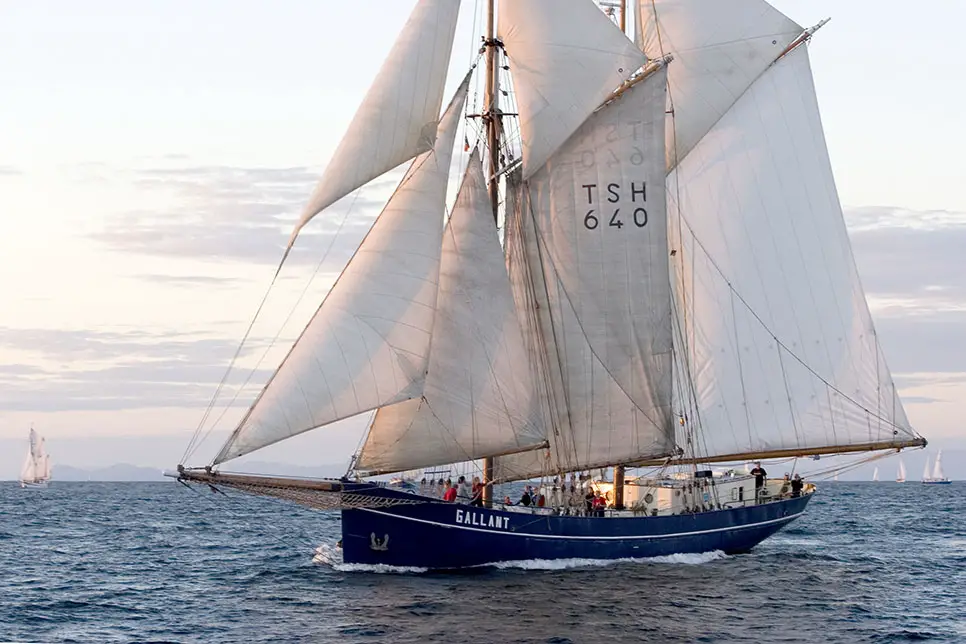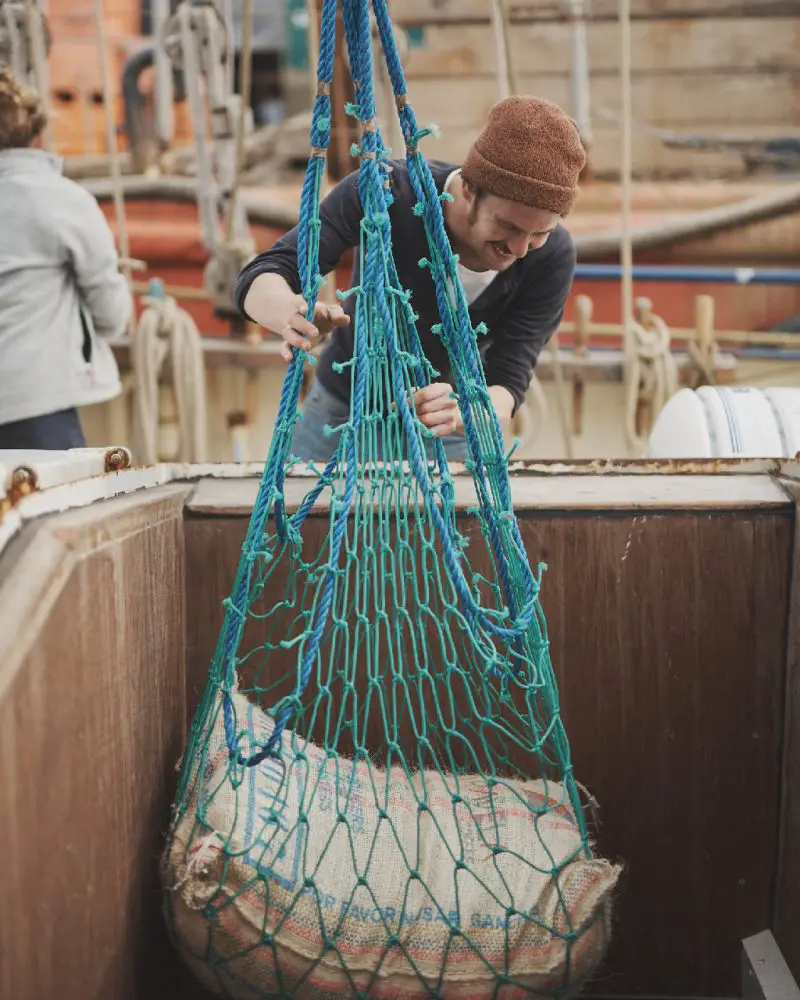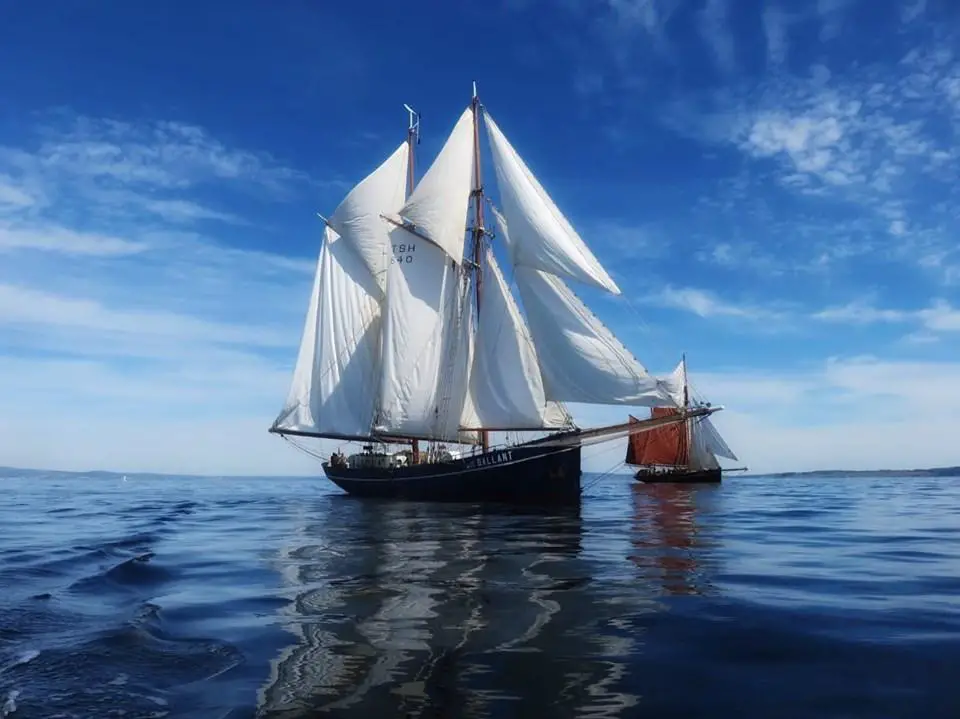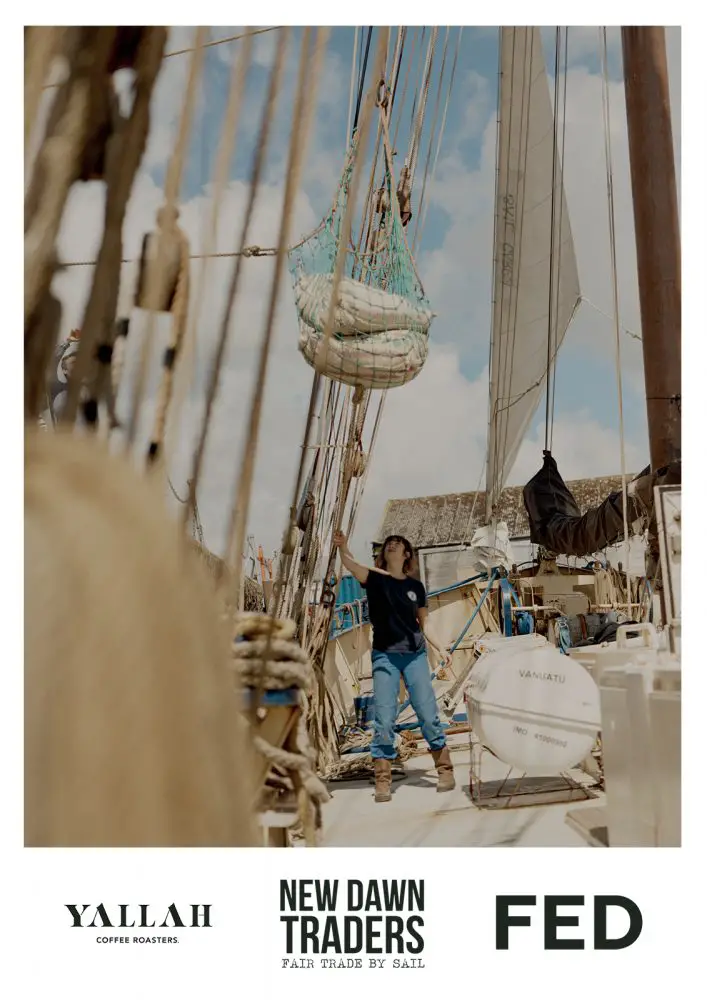
When it comes to items that you can’t easily grow, produce or manufacture though, often we have no choice but to turn to products which have been flown into the UK or come in via polluting transport like oil-glugging shipping containers. Things like coffee and wine (staples in this house) are prime examples. There are however, people making a difference in this field – and two of them are right here in my home city of Bristol. Let me introduce you to two brands using cargo shipped under sail.
What is shipped under sail?
It’s what it sounds like – delivering cargo via sail ships rather than plane, container ship or trucks (and often a combination). Wind powered cargo shipping is a slow process both physically and from a project planning point of view. It’s also more expensive and routes – and resources – are limited, but then who said doing the right thing was the easiest? In a recent piece by The Guardian, Yallah Coffee owner Richard Blake said “There is a toss-up between the ideal and trying to make the product affordable. We have realised that it is possible – it just might take a little longer.”
Thinking about the climate crisis and all the ways we need to do better, it’s often a return to older practices that’ll make the biggest impact. For example, choosing to eat and grow organic vegetables, shopping seasonally and locally and cutting down on energy use. By choosing to use wind-powered sailing ships for their cargo, these businesses are making a real impact on the planet and it feels like taking a step back in time as they follow many of the old colonial trade routes.

Xisto Wines
Xisto is run by husband and wife team Anton and Lela and they’re passionate about what they call the circle of zero waste. Their business as close to carbon-neutral as possible. They import wines from Porto on sailing ships in barrels, reusing bottles and recycling as they go along. They even power their delivery vans with used cooking oil and store the wine in reconditioned barrels. I first met them in early 2019 when I recorded a podcast with them and revisiting it now reminds me that I need to place an order.
What makes Xisto special is their dedication to sustainable winemaking and zero waste transportation. They work directly with a number of small, young and exciting wine makers in Portugal (a country which clearly has their hearts!). And many of them are creating low-intervention, organic and biodiverse wines. Lela joked about the bromance between Anton and wine-maker Mateus Nicolau de Almeida and the love is real. You can hear it in Anton’s voice!
If you want to see a delivery for yourself, they have the engine-less ship De Gallant arriving at Underfall Yard in Bristol between July 16th – 17th. It’ll will be at Underfall Yard for all to see. De Gallant is owned and run by the Blue Schooner Company who offer sustainable and ethical cargo trade solutions across Europe and the Atlantic. The ship itself was built and launched in 1916 and she’s had a varied past – from being a herring fishing boat to a sailing school and now, as a carbon- neutral cargo ship. And isn’t she a beauty?

Listen to my podcast (below) to find out more about Xisto Wines. Please note, its an early one so the sound quality isn’t quite what it is nowadays!
FED Cafes with Yallah Coffee & New Dawn Traders
FED have three cafes here in Bristol. I’m hoping they’re going to open one near my house but for now, I don’t mind visiting them across town! They have a chilled vibe and serve cakes, savouries and of course, excellent coffee. It’s the coffee that we’re focusing on today. They’re the only cafes in the country selling coffee that is shipped under sail. It comes all the way from Las Brisas, Columbia as part of a fantastic collaboration between Yallah Coffee and New Dawn Traders who are one of only a few sail cargo companies doing this.

Yallah are on a mission to increase the quantity of coffee they buy that is shipped under sail. They’re working to reduce their carbon footprint and promote the concept that sail cargo is a movement to stay. Alongside choosing to use this method of delivery, they also have plenty of sustainable credentials. Their HQ is powered by solar panels and a biomass boiler which burns the waste from roasting coffee. They’ve also partnered with conservation charity Trees for Life and have their own Yallah Grove in which they’re planting trees! Amazing.
Back to FED in Bristol
So, back to FED cafes in Bristol. They’re now stocking this wonderful Yallah Coffee, shipped under sail. In total this year, New Dawn Traders brought in 3 tonnes of coffee, grown and harvested by 15 producers and paid 27.5% more than the market price. This coffee was shipped from the port of Santa Marta in Columbia and sailed over 7,500 nautical miles. All of this with a carbon footprint close to zero. Docking in Cornwall, the coffee was unloaded by hand and taken straight to the Yallah roastery.
No artic trucks, no warehousing and no middle-men necessary. All of this means sustainability in its truest form. Actions not words and traceability where it matters – putting people and the planet first. And now, the coffee is right here in Bristol, waiting for you lovely lot to go in and order a cup. I’d suggest a slice of cake to go alongside it too. I mean, it’d be rude not to….



I think this is amazing! I am surprised it’s possible to do this and still sell products at a competitive price but looks like they are succeeding which is brilliant. I imagine the labour costs of the longer slower journeys add a lot of overhead but what a marvellous way to truly reduce carbon footprint for those products we can’t readily produce here in the UK!